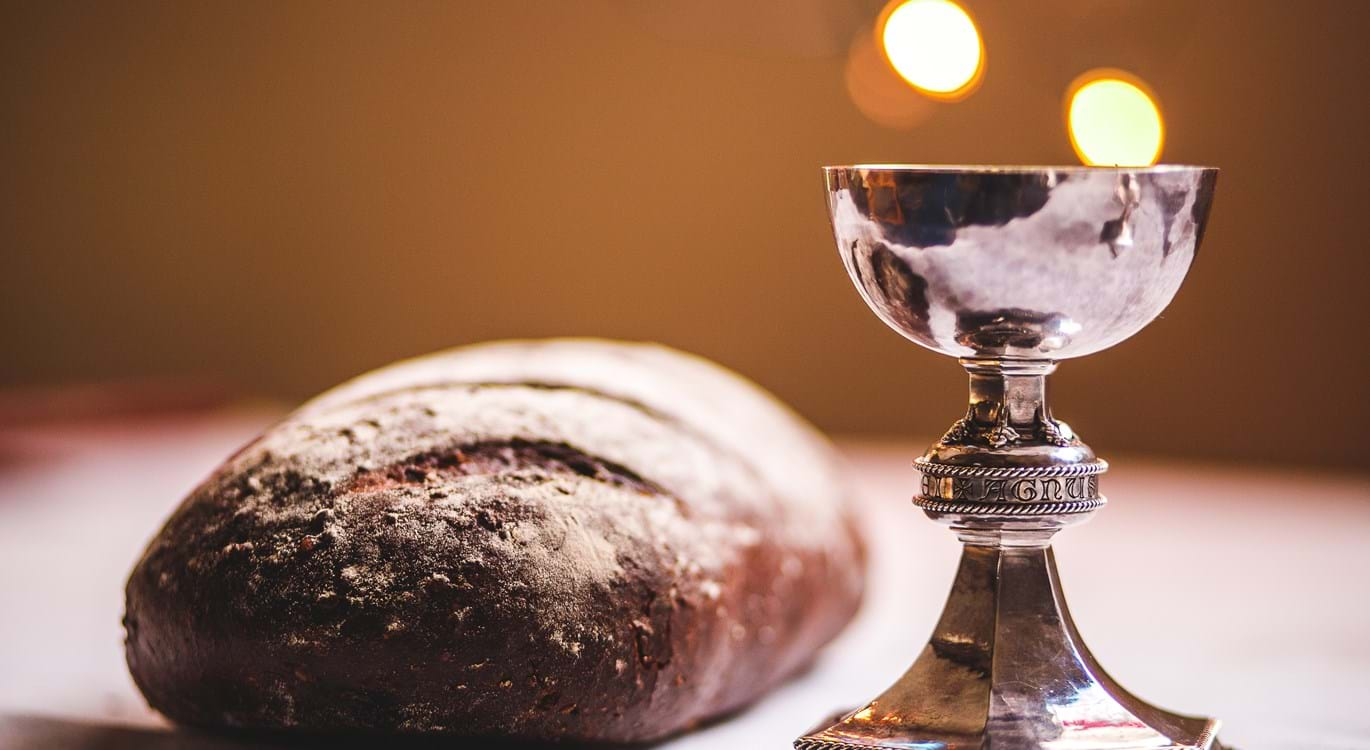Although Paul had to correct other aspects of their conduct, he did not correct this practice when he wrote 1 Corinthians chapter 11. Indeed, five times within this context he mentioned them being together (vv 17,18,20,33,34) .
Therefore when you come together in one place (1 Corinthians 11:20).
Sadly, the Corinthians were guilty of selfishness. They had turned the simplicity of the Lord’s supper into a feast which displayed their fragmentation rather than their fellowship.
For in eating, each one takes his own supper ahead of others; and one is hungry and another is drunk. What! Do you not have houses to eat and drink in? Or do you despise the church of God and shame those who have nothing? What shall I say to you? Shall I praise you in this? I do not praise you (1 Corinthians 11:21-22).
It was a far cry from the early Christians in Jerusalem who removed any potential social barriers by having all things common. Just 20 years later in Corinth these social and cultural barricades were being rebuilt at the Lord’s supper.
It seems that the Corinthians had forgotten, or rejected, the instruction Paul had given them about the Lord’s supper; he therefore explained again its origin and significance.
For I received from the Lord that which I also delivered to you: that the Lord Jesus on the same night in which He was betrayed took bread (1 Corinthians 11:23).
Against the dark background of betrayal, the Lord introduced this most beautiful ordinance. At some point during the Passover meal, He took bread that symbolised the exodus from Egypt, broke it and said, ‘This bread is My body.’
"And when He had given thanks, He broke it and said, ‘Take, eat; this is My body which is broken for you; do this in remembrance of Me. In the same manner He also took the cup after supper, saying, ‘This cup is the new covenant in My blood. This do, as often as you drink it, in remembrance of Me’"1 Corinthians 11 24-25
It is important to understand that He was speaking metaphorically: the bread and the cup represented His body and blood. His request, to eat and drink in memory of Him, involves more than a physical act. We are to remember; that is, consciously call to mind the Lord Jesus in His life, death and resurrection, and what His work means for the forgiveness of our sins.
The Lord’s supper reminds us that salvation is not mystical. Each time we take the bread and cup we declare the historical basis of redemption in the death, burial and resurrection of Jesus, the incarnate Son of God. He had a real body and He shed His blood on a cross outside Jerusalem. We remember the man who said so long ago, ‘This do in remembrance of Me’.
For as often as you eat this bread and drink this cup, you proclaim the Lord’s death till He comes (1 Corinthians 11:26).
As the Corinthians met together as a church and partook of the Lord’s supper, they were proclaiming His death. It is a temporary supper (‘till He comes’), only necessary until we see Him face to face. Paul does not mention the frequency of the supper, although the example of the church at Troas (Acts 20:7) and his instruction to the Corinthians about collecting money for poor saints in Judea both point to a regular participation on the first day of the week.
Now concerning the collection for the saints, as I have given orders to the churches of Galatia, so you must do also: On the first day of the week let each one of you lay something aside, storing up as he may prosper, that there be no collections when I come (1 Corinthians 16:1-2).
As the church comes together to remember the Lord in the breaking of bread, there is no scriptural pattern or apostolic instruction about a liturgy or set procedure. More important than debate about the order of gathering, where scripture is silent, is the spiritual condition of the individual Christian. Let us heed the instruction of the apostle.
Therefore whoever eats this bread or drinks this cup of the Lord in an unworthy manner will be guilty of the body and blood of the Lord. But let a man examine himself, and so let him eat of the bread and drink of the cup (1 Corinthians 11:27-28).
We can so easily become complacent. Let us take heed to the warning and constantly maintain communion with our God so that we may draw near with clean hands and a pure heart, remembering our Lord in the beauty of holiness.



